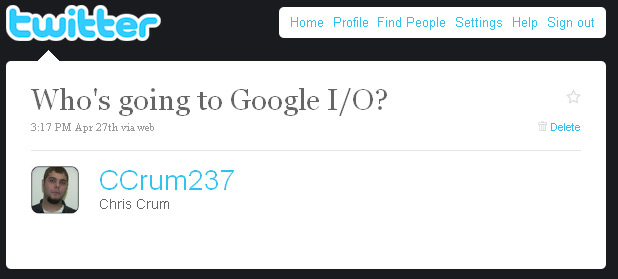What is fair use? It’s a question that doesn’t seem to go away. Traditional media publications often throw blogs under the bus for borrowing quotes and spreading news to their own audiences. While there are certainly plenty of cases in which blogs do trample on the concept of fair use, to say that blogs in general follow this practice is simply absurd. In fact, as we looked at in a recent article, traditional media publications "borrow" from blogs as well, and often don’t even give the credit that most professional bloggers would give without thinking twice.
An LA Times piece this week looks at a publication – the Las Vegas Review Journal – that has reportedly filed over 30 lawsuits against blogs that it claims use its content without permission, leading author James Rainey to ask, "So what is fair use?"
How would you describe fair use? Tell us in the comments.
Again, this is not a new question, but it is one that has yet to be collectively resolved. We took it upon ourselves to reach out to a number of media professionals from both blogs and traditional media publications, as well as lawyers, and readers, with the aim of presenting a well-rounded view of how these different parts of the media-picture see fair use. Unfortunately, not everyone was too eager to lend their opinions on such a touchy subject, and I have yet to receive any real response from any of the traditional media publications I contacted (I’ll update if I do).
Viewpoints
Rich Ord, CEO of the iEntry Network and Publisher of WebProNews says, "Fair use is taking small amounts of content in order to add perspective or additional information to your own content. A publisher should also link to the content source and credit them accordingly."
Marshall Kirkpatrick, Co-Editor, VP of Content Development and Lead Blogger at popular tech blog ReadWriteWeb tells WebProNews, "Aggregation and filtering is a beautiful thing. Give me a day with a HuffPo appearance and it’s a good day for us at ReadWriteWeb. Excerpts with as much as three paragraphs, with attribution and a link, are a great way to add value and share traffic. Fair use paves the way for rapid content creation and curation – I have no fear of it at all."
Here’s how one of our Facebook fans described fair use: "I see fair use as similar to writing papers. Name the source and link, if necessary and do your homework. Some companies do not allow use of their materials at all without their permission. There aren’t documented rules as there are for writing papers such as the writing formats MLA or APA but they do include rules to follow when using online content in writing."
The Law
Attorney John Burton, who practices Trademark/Copyright and Internet/Technology law, tells us: "Fair use is a legal doctrine under U.S Federal.Copyright law that provides for limited use of copyrighted material without requiring permission from the copyright owners, such as for news, research, teaching and commentary. It provides for the legal use of third-party copyrighted material under a four-factor test:
1. the purpose and character of the use, including whether such use is of a commercial nature or is for nonprofit educational purposes;
2. the nature of the copyrighted work;
3. the amount and substantiality of the portion used in relation to the copyrighted work as a whole; and
4. the effect of the use upon the potential market for or value of the copyrighted work."
"Kelly v. Arriba Soft Corporation (2003) set a strong benchmark for fair use and the Internet," Burton continues. "Arriba Soft was found to have violated copyright without a fair use defense in the use of thumbnail pictures and inline linking from Kelly’s website in Arriba’s image search mechanisms. The decision was appealed."
"On appeal, the 9th Circuit Court of Appeals found in favor of the defendant," he continues. "In reaching its decision, the court utilized the above-mentioned four-factor analysis. First, it found the purpose of creating the thumbnail images as previews to be sufficiently transformative, noting that they were not meant to be viewed at high resolution like the original artwork was. Second, the fact that the photographs had already been published diminished the significance of their nature as creative works. Third, although normally making a ‘full’ replication of a copyrighted work may appear to violate copyright, here it was found to be reasonable and necessary in light of the intended use. Lastly, the court found that the market for the original photographs would not be substantially diminished by the creation of the thumbnails. To the contrary, the thumbnail searches could increase exposure of the originals."
Interpretation
So how would this apply to written content? Would a snippet and a link, designed to send traffic to the original source, be the text equivalent of a small thumbnail increasing the exposure of the original? It’s not so clear.
Burton seems to recommend a better safe than sorry approach. "Essentially, caution is the word when using copyrighted content of another on your website," he says. "I strongly recommend receiving written authorization from the copyright holder prior to redistributing their work or link, especially if there is a commercial interest in why you are using the work."
WebProNews spoke to Attorney Michael Donaldson of the law firm Donaldson & Callif and Pat Aufderheide, the Executive Director for the Center of Social Media at American University, who has worked with the university’s law school on developing best practices for fair use, at SXSW a couple months ago. They also spoke about fair use from the legal perspective. Watch this clip if you’d like to hear more on the subject from this standpoint:
"Fair use is part of copyright law, and it says you have the right to use other people’s copyrighted material without licensing it, without paying for it, or even asking them permission under some circumstances," said Aufderheide. "The law itself is rather vague, so the question is , ‘how do you interpret that law?’"
"The newspaper people had me pretty much in their corner until they went after the cat people," writes James Rainey, the LA Times writer who covered the Las Vegas Review Journal story. Basically, the story is about a newspaper publication going after dozens of blogs for using content. To what extent this content was used is not really delved into, but the highlighted example is of a small cat blog that doesn’t even have ads on it, and could hardly be considered a competing publication. In all "fairness," you should read Rainey’s story for more on these suits.
Regardless of how you interpret fair use law, it appears that the traditional media will continue to put pressure on new media. One minute the New York Times is talking about how important blogs are, and the next, it’s keeping feed readers from using its content. Of course, as Search Engine Land Editor-in-Chief Danny Sullivan recently showcased, traditional media also pushes the boundaries of fair use itself. It goes both ways. Unfortunately, traditional publications are more likely to have the funding that bloggers may not have, when it comes to legal disputes.
Are traditional media publications justified in going after bloggers who use samples of their content and link to the original? Share your thoughts in the comments.


 At SXSW recently Scott Rosenberg, author of
At SXSW recently Scott Rosenberg, author of 

